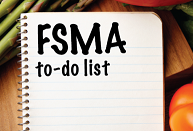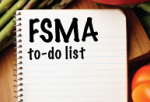In recent years, food recalls have become a concern for the food and beverage (F&B) industry, with regulatory bodies tightening oversight as the number of recall-related incidents continues to rise. The F&B industry is no stranger to recalls, but recent trends indicate a steady increase in frequency, with the Food and Drug Administration (FDA) and the United States Department of Agriculture (USDA) issuing 313 recalls in 2023, an 8% increase from the previous year. This uptick can be attributed to various factors, including the detection of undeclared allergens, which made up almost half of food recalls last year, and contamination by harmful bacteria such as Listeria, Salmonella, and E. coli.
Consumers are taking notice of these continuous food recalls as a new Gallup poll revealed that Americans’ perspective of the grocery industry has turned negative due to inflation and food safety concerns. It also showed that, for the first time, Americans have more negative views (47%) than positive (33%) of the grocery industry. The growing number of recalls, plus consumer concerns, has intensified calls for stricter compliance and enhanced traceability within the food supply chain.
Major Changes Are Coming
These recalls have become a persistent public health problem, with over 1,100 Americans falling ill from foodborne illnesses linked to recalled products. However, significant steps are being taken to address these concerns in the next few years. To reduce the number of foodborne illnesses, the FDA introduced the Food Safety Modernization Act (FSMA) 204, a regulation requiring F&B businesses to provide detailed traceability information within 24 hours of a recall. Starting in January 2026, this rule will focus on tracking food inputs from suppliers, enabling companies to pinpoint the source of contamination more efficiently.
FSMA 204 will bring major changes to the F&B industry by enhancing traceability requirements for high-risk foods. The rule mandates that companies must improve tracking across the supply chain to ensure key data points are recorded at critical stages of food production, processing, and distribution. This means F&B businesses must implement more stringent record-keeping processes, invest in technology for real-time tracking, and increase collaboration with suppliers to ensure compliance.
However, many organizations aren’t prepared to undergo the data process transformations needed to align with this new traceability rule. Below are a few actionable steps companies can take to prepare their supply chains for FSMA 204:
Investing in Solutions to Streamline Reporting
Despite the wide scale impact FSMA 204 will have across the F&B industry, a main challenge for companies will be updating and investing in new systems and processes to comply with the rule. FSMA 204 mandates that F&B companies provide detailed, accurate traceability data within a 24-hour window during a recall, which requires modern technology capable of handling real-time information. Many existing systems are outdated or not equipped to meet this new level of compliance. As a result, suppliers will need to adopt new software, train staff, and overhaul data management processes. These changes are certain to be time-consuming and raise operational costs. The complexity of this process, especially in a global and multifaceted supply chain, can be overwhelming without the right tools in place.
In addition, suppliers face the challenge of integrating these new systems with their broader supply chain networks. Ensuring seamless communication between suppliers, manufacturers, and retailers is essential for meeting the strict reporting timelines under FSMA 204. The coordination required to share and track data effectively across multiple partners adds an additional layer of complexity. Suppliers must also ensure their traceability solutions are scalable to accommodate future growth and evolving regulations, all while maintaining business continuity and protecting their bottom line.
Investing in scalable technology not only ensures compliance but also enhances business resilience. It provides better visibility into the supply chain, helping businesses respond quickly to disruptions, recall situations, or emerging food safety threats. Furthermore, these solutions enable businesses to streamline their data-sharing processes with trading partners, improving collaboration and reducing the time and resources spent manually documenting transactions.
While this can be costly, investing in robust technology systems and implementing effective food safety quality programs for employees provides the benefit of demonstrating a commitment to food safety and helps ensure smoother operations.
A few solutions suppliers can consider include advanced technologies like supply chain control towers and blockchain. These solutions provide real-time insights into inventory, orders, and potential disruptions, allowing companies to trace food origins and pinpoint contamination sources quickly. Supply chain control towers centralize data collection, management, and analysis, streamlining reporting processes, while blockchain offers a secure, tamper-proof record that ensures data consistency and transparency across all participants in the supply chain. By leveraging these technologies, suppliers can enhance traceability, reduce contamination risks, and build greater consumer trust.
Enhancing Data Consistency
Data consistency works in tandem with the integration of new technologies. The success of any traceability system under FSMA 204 relies on the consistency and accuracy of data collected throughout the supply chain. However, one of the most significant challenges businesses face is ensuring that data is recorded uniformly across different suppliers and systems. Inconsistent or incomplete data can lead to gaps in traceability, making it difficult to track products effectively or respond quickly to a recall. With the new regulation requiring detailed traceability information within 24 hours of a recall, any discrepancies or gaps in data could lead to delays in identifying contamination sources.
To ensure data consistency, suppliers can implement standardized data collection practices and utilize integrated technologies, such as supply chain control towers and blockchain. By implementing uniform data entry protocols across the entire supply chain, suppliers can avoid errors, discrepancies, and miscommunication that often result from inconsistent or fragmented data. Standardization helps streamline reporting and ensures that all parties—from suppliers to distributors—are working from the same set of accurate, reliable information.
Bringing Employees Along on the Journey
Investing in technology and ensuring data consistency are vital steps in preparing for FSMA 204, but they are only part of the equation. For these initiatives to succeed, businesses must also invest in their employees through training and education. Compliance with FSMA 204 requires everyone involved in the food supply chain to understand their role in the traceability process and the importance of accurate data reporting.
Training programs can be implemented at all levels of the organization to educate employees on the new traceability requirements and how they affect day-to-day operations. This includes not only teaching staff how to use new software solutions but also fostering a culture of accountability and food safety awareness, including setting up conversations with employees at every stage of the supply chain. Employees must understand that even minor data collection or reporting lapses can have significant consequences, from costly recalls to legal penalties and damage to brand reputation.
Continuous education is also key to keeping up with the evolving regulatory landscape. As food safety regulations change and new technologies emerge, businesses must keep their teams informed and updated. This can be achieved through regular workshops, webinars, or online courses that keep employees engaged and equipped with the latest knowledge.
The Cost of Non-Compliance
Failure to comply with FSMA 204 can lead to serious consequences for both suppliers and retailers. The FDA has the authority to enforce various penalties, including civil or criminal actions in federal court. It’s important to remember that this rule is considered mandatory, and parties will be under real pressure from the government if they don’t take the necessary steps to ensure the traceability requirements under this act. Non-compliance can lead to legal repercussions for both companies and suppliers in the form of lawsuits and litigation. In addition, the FDA has the authority to impose significant fines, sanctions, and criminal penalties for non-compliance.
Suppliers that are unable to meet FSMA 204 requirements may also face financial loss and damage to the company’s reputation as retailers and manufacturers may decide to switch to more reliable partners. Compliance penalties can also result in lost sales and brand damage that can impact consumers’ decisions.
Operationally, non-compliance with FSMA 204 can disrupt supply chain processes, leading to delays in identifying and resolving contamination issues. The inability to quickly trace food inputs can result in prolonged and costly recalls. Furthermore, non-compliance can strain relationships with trading partners who rely on accurate traceability data for product safety.
Preparing for FSMA 204 requires a multifaceted approach that combines technology, data standardization, and employee engagement. By investing in solutions that streamline reporting, enhance data consistency, and bring employees along through training and education, F&B companies can position themselves for success. These actions will help ensure compliance with FSMA 204 and lead to more efficient, transparent, and resilient supply chains, ultimately improving food safety for consumers.









